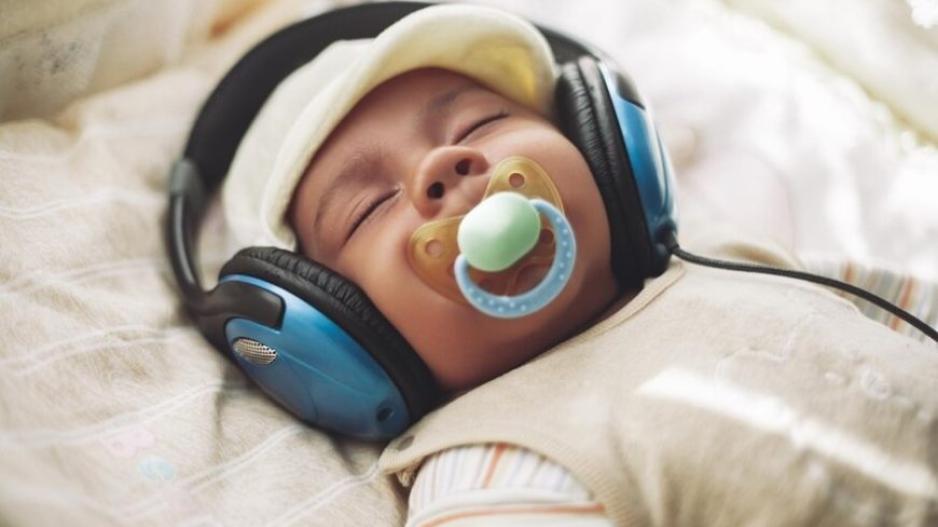Can Classical Music Make Your Baby Smarter?
From lullabies to Mozart and Strauss, science explores how classical music affects brain development, sleep, and emotional regulation in babies and children.
Have you ever wondered whether Mozart can make your baby smarter? Or whether lullabies—classical or not—have effects beyond simply putting children to sleep?
You’re not alone. The scientific community has long examined how classical music impacts infants, toddlers, and children.
Parents have sung lullabies to their children for thousands of years. In fact, the first recorded lullaby was found inscribed on a cuneiform clay tablet over 4,000 years ago by an ancient Babylonian, according to Classic FM.
From “Hush Little Baby” to Brahms’s Cradle Song, many well-known pieces of classical music are lullabies deeply rooted in human instinct.
But can classical music actually help children—before they’re even born?
Researchers at the Autonomous University of the State of Mexico found that calm classical music can have a soothing effect on unborn babies. Using headphones placed on pregnant women’s bellies, scientists played music to fetuses, resulting in more regular heartbeats. Tracks included “The Swan” from The Carnival of the Animals by Camille Saint-Saëns and “Arpa de Oro” by Abundio Martínez.
Not all music was equally effective. The traditional Mexican guitar piece “Arpa de Oro” triggered stronger changes in fetal heart rate than Saint-Saëns’s composition. This suggests that musical qualities like melody, rhythm, and even cultural familiarity may influence fetal response to sound.
Although researchers emphasize that we can’t yet claim direct effects on long-term neurological development, these preliminary findings open doors for future studies on how the prenatal sensory environment could shape the developing nervous system. It’s hypothesized that even brief exposure might stimulate the development of the fetal autonomic nervous system.
A separate 2018 study showed that 84% of unborn babies who listened to classical music responded by moving their mouths—compared to just 59% who reacted to pop music.
In 1993, scientists at the University of California conducted a study that would radically alter public perception—albeit misleadingly—about classical music’s impact on cognitive development.
Led by Frances Rauscher, the research tested whether Mozart’s Sonata for Two Pianos in D Major could improve spatial reasoning. Students who listened to the piece for a few minutes performed better on subsequent reasoning tests than those who listened to different music or none at all.
When the study was published (and republished in 1995), media outlets quickly distorted its findings. Journalists claimed that Mozart boosted IQ—a claim the researchers never made. The idea soon went viral under the now-famous phrase: “The Mozart Effect.”
A 1994 New York Times article by Alex Ross even asserted that “listening to Mozart actually makes you smarter,” helping cement the myth that classical music could directly raise a child’s intelligence.
This media frenzy led many parents to believe playing Mozart would enhance their child’s intellect. In 2000, Don Campbell released “The Mozart Effect for Children,” claiming that music could support language, motor, and emotional development. At one point, the U.S. state of Georgia even proposed funding classical music CDs for every newborn.
However, despite the hype, there’s still no scientific evidence that Mozart—or classical music in general—raises IQ, as Classic FM notes. That said, there’s also no indication that it has negative effects.
Mozart might not make your baby a genius, but Johann Strauss—the "King of the Waltz"—could help with early speech.
In a study from the University of Washington’s Institute for Learning & Brain Sciences, researchers found that infants who engaged in music-based play sessions—especially with waltz rhythms—showed improved abilities to process both speech and musical sounds.
Babies were split into two groups for 15-minute sessions. One group participated in rhythmic play with music, following the beat with their parents. The other group played silently with cars and blocks. Brain scans later revealed that babies in the musical group had stronger responses to disruptions in both music and speech patterns.
According to lead researcher Christina Zhao, “Our study is the first in infants to suggest that experiencing rhythmic patterns in music can enhance the ability to detect and predict rhythmic patterns in speech.”
So next time you want to support your baby’s first words, consider playing The Blue Danube or even Tchaikovsky’s Waltz of the Flowers.
One thing is certain: lullabies have existed since the first sleep-deprived mother tried to soothe her restless baby.
Just as relaxing music calms babies in the womb, scientists have found that premature newborns exposed to lullabies and classical music tend to show higher oxygen levels and greater comfort.
Classical music also helps with sleep in older children. A 2017 study found that toddlers fell asleep faster when listening to classical music. According to Dr. Tiffany Field, a pediatric researcher at the University of Miami who led the study, sleep onset was 35% faster in infants and 19% faster in preschoolers who listened to music.






